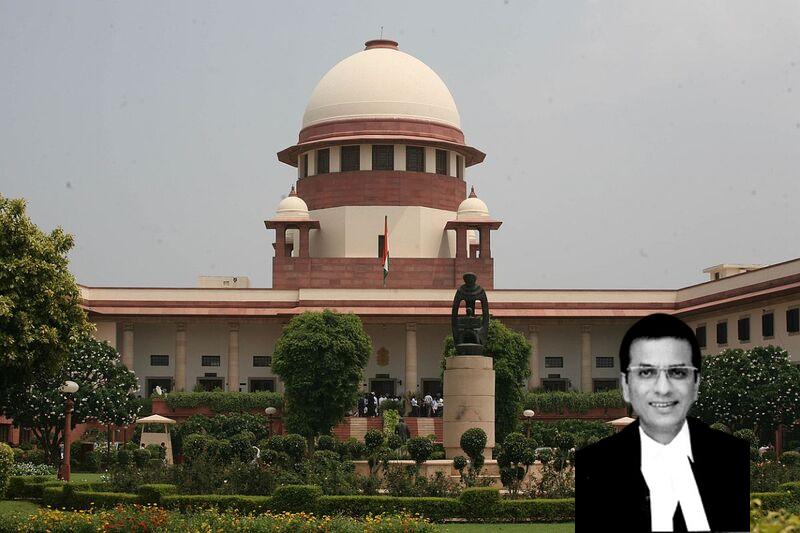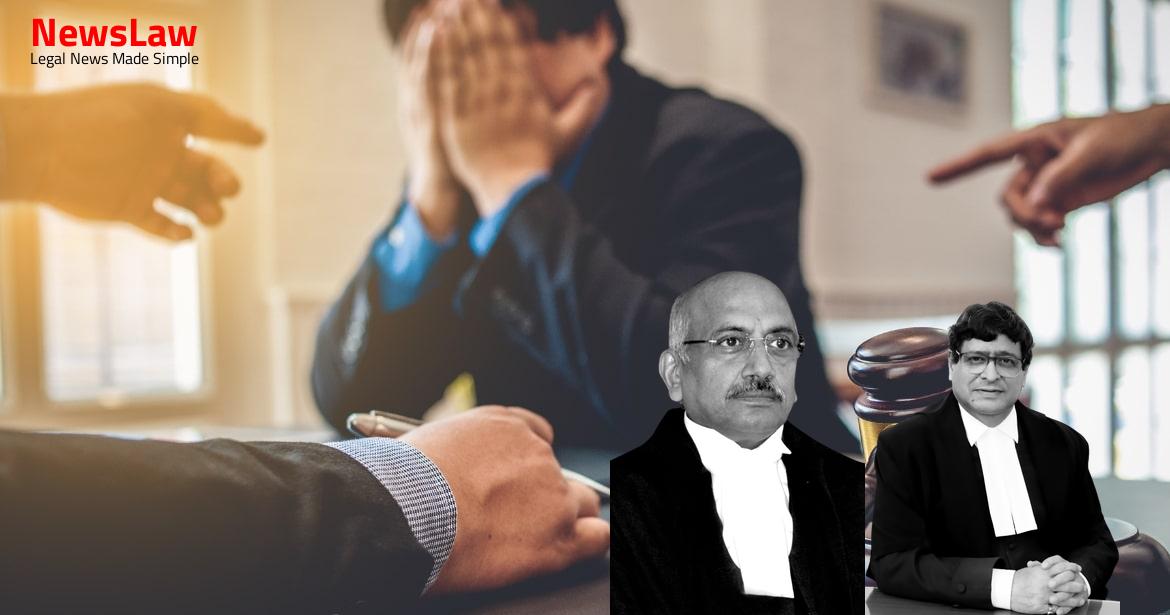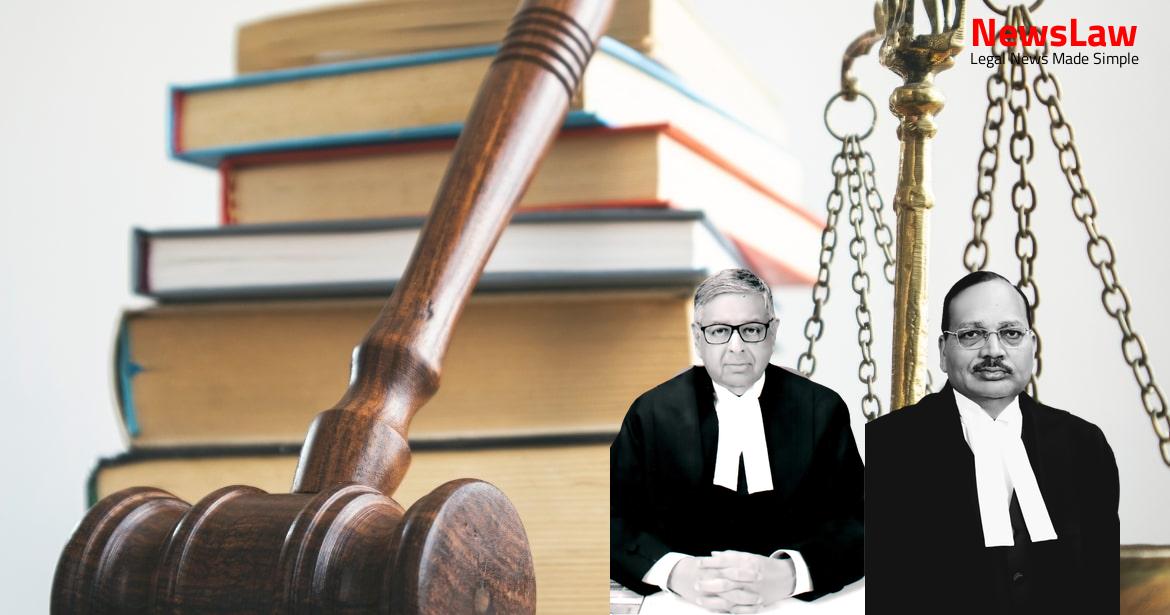The appellant filed a suit for a perpetual injunction in respect of the immovable property more particularly described Page 2 of 13 in the schedule to the plaint (for short, ‘the suit property’). The respondents’ contention in the written statement was that they, along with their family members, were continuously in possession of the suit property from 1978 and were storing firewood, bricks, and manure. It was also contended that in part performance for the agreement for sale, the respondents’ mother was put in possession of the suit property. The submission of the learned counsel for the appellant was that all the material particulars regarding the appellant’s title were already incorporated in the plaint as originally filed, and only by way of abundant caution was the amendment made to include a prayer for declaration of title. He submitted that though the respondents admitted the appellant’s title, without examining whether the respondents had established their plea of adverse possession, the High Court had erroneously interfered with the decree of the first appellate Court by dismissing the suit. It was urged that the respondents’ father and, thereafter, the respondents were in open and peaceful possession of the suit property from 1978 and have perfected their title by adverse possession.
At the highest, the respondents proved that under an agreement for sale executed by Jayarama, their mother paid consideration to the said Jayarama. Thus, the stand is that their mother was put in possession of the suit property by Jayarama in part Page 7 of 13 performance of the agreement for sale. Even going by the respondents’ case, the appellant was the co- owner of the property, and the respondents admittedly had no title in respect of the suit property. The general principles as to when a mere suit for permanent injunction will lie, and when it is necessary to file a suit for declaration and/or possession with injunction as a consequential relief, are well settled.
Where the title of the plaintiff is under a cloud or in dispute and he is not in possession or not able to establish possession, necessarily the plaintiff will have to file a suit for declaration, possession and injunction. On the other hand, where the plaintiff has clear title supported by documents, if a trespasser without any claim to title or an interloper without any apparent title, merely denies the plaintiff’s title, it does not amount to raising a cloud over the title of the plaintiff and it will not be necessary for the plaintiff to sue for declaration and a suit for injunction may be sufficient. He may file the suit for declaration with consequential relief, even after the suit for injunction is dismissed, where the suit raised only the issue of possession and not any issue of title.” (underlines supplied) 16. Hence, the plaintiff need not claim a declaration of title in such a case as the only issues involved in such a suit are whether the plaintiff has proved that he was in possession on the date of the institution of the suit and whether the defendant has proved that he has perfected his title by adverse possession. Whether in the facts and circumstances of the case of appellate court was justified in reversing the judgment and decree passed by the trial court based on Exbhit P-1?” We agree with the High Court that the amendment was barred by limitation, considering the date of the cause of action pleaded and the date of applying for amendment.
As the High Court has not considered the merits of the suit and counter-claim, we propose to remand the regular second appeal to the High Court. We direct the parties to this appeal to appear before the concerned roster Bench of the Karnataka High Court Page 13 of 13 on 30 October 2023, at 10.30 a.m., for fixing a date for hearing 23.



